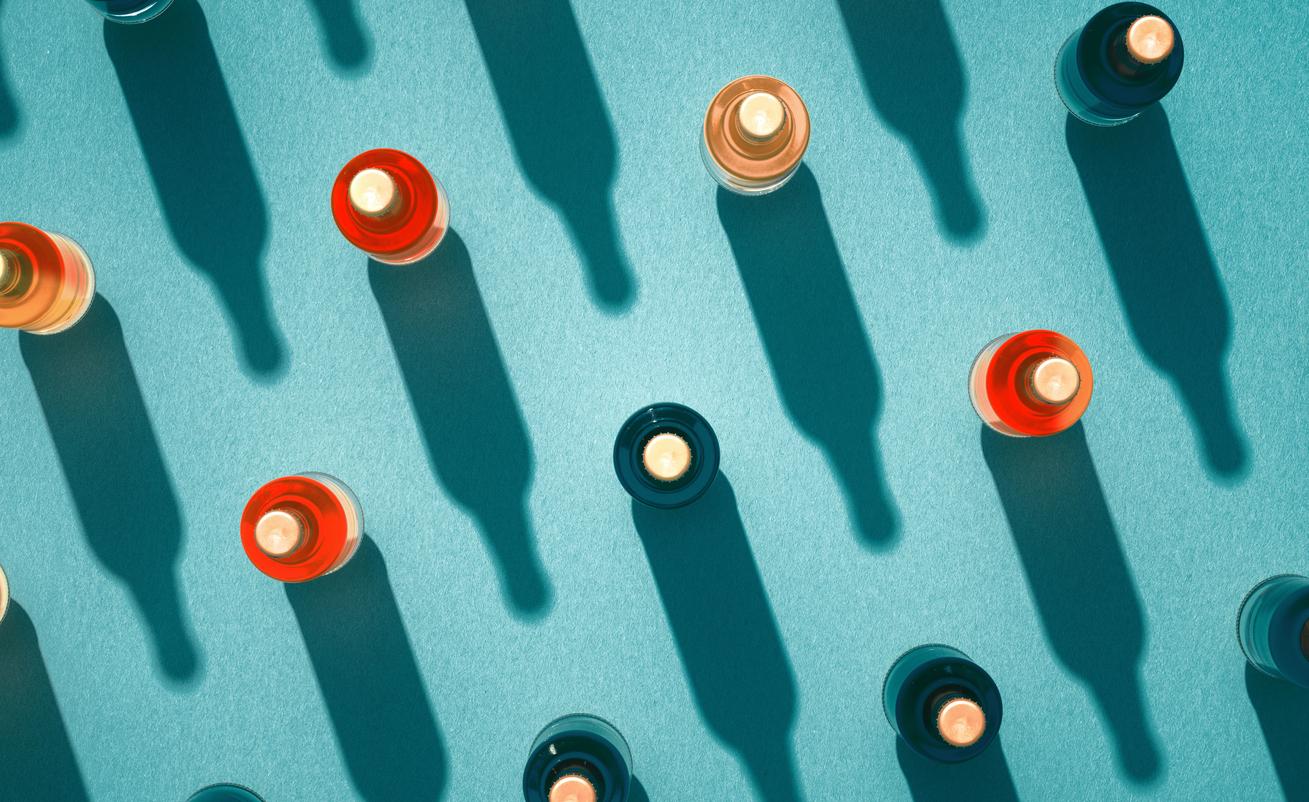Whether it’s a couple of drinks at the end of a stressful day at work or a catch-up at the pub to distract from life’s problems — using alcohol to unwind or deal with unwelcome emotions is pretty common in our culture.
It might feel good in the moment, but using alcohol to cope with life’s stressors will make you feel worse in the long run, and it could mean there’s an underlying issue you need to deal with.
The relationship between alcohol and mental health is complex, and it can go both ways. Drinking can affect your mental health, and your mental health can affect your drinking habits.
Here’s what you need to know about the relationship between alcohol, mental health and why harmful boozing can be a sign something’s up.
Could your habits be a sign of an underlying problem?
Nearly half of Australian men experience a mental health problem at some point in their lifetime. Men are less likely than women to seek help for their mental health, and they’re less likely to get the support they need when they do.
Men tend to try and self-manage their mental health symptoms and can turn to alcohol as a maladaptive coping mechanism, meaning it provides short-term relief without addressing the underlying issue.
“For some men, declining mental health might not look like tears and expressions of upset, it might look like wanting to drink more or increasing drug use,” says the Alcohol and Drug Foundation’s Knowledge Manager, Robert Taylor.
Although men are encouraged to talk about their emotions and reach out for help when life gets heavy, masculine norms that encourage them to be stoic, strong and self-reliant might make them feel like sharing their worries is weak or shameful.
“There’s that added layer of men maybe feeling like they have less opportunity or option to express themselves emotionally at times, having fewer skills sometimes to express themselves and not having the language, which obviously can compound things,” Taylor says.
Using alcohol instead of speaking up about your worries can cause harm, creating changes to your brain and body that will keep you drinking. Alcohol slows down processes in your brain.
It can initially make you feel less inhibited and relaxed, but these effects wear off quickly. Drinking alcohol affects the chemicals in our brains that are needed for good mental health, depleting the neurotransmitters that naturally reduce anxiety and depression.
This leads you to feeling more anxious or depressed when you stop drinking and needing to drink again to numb those feelings. As your tolerance builds, you need an increasing amount of alcohol to experience the same reduction of those feelings.
“For some people who are feeling stressed, anxious or depressed, alcohol and substance use can serve as an easy balm, an easy escape from that feeling,” says Taylor.
“While someone might feel good in the short term, longer term they might feel worse after their use, and then that can precipitate them to use more, and often that’s how dependence can develop.”
Harmful alcohol use can also affect your relationships with your partner, family and friends, or impact your work and finances, which also contribute to poor mental health.
It can disrupt your sleep and affect physical health, contributing to more than 200 different types of diseases and injury including cardiovascular disease, diabetes, cancer and liver disease.
Critically for men — who make up 75% of suicides in Australia — alcohol is one of the most significant risk factors for suicidal thoughts and actions.
“The reality is that not only have you got a drinking problem or addiction, you’ve also got the original problem you’re trying to fix, and no other solutions apart from the drink,” says Professor Dan Lubman AM, Executive Clinical Director at Turning Point and Professor of Addiction Studies and Services at Monash University.
“So, part of what we try and do in treatment is not only deal with the addiction but also deal with the underlying thing that people are struggling with, whether that be trauma or mental health [problems] or other issues that are going on.”
What is harmful drinking?
From pubs to footy games, kids’ birthday parties to cinemas — you’d struggle to find a social scenario in Australia where drinking alcohol isn’t encouraged or, at the very least, an available option.
“Alcohol is so entrenched in our culture and so normative, and particularly amongst men, that it’s seen as something that’s socially sanctioned and a way to relax,” says Professor Lubman.
“We’re sold this message of drinking responsibly, which reinforces the idea that if you don’t drink responsibly, there’s something wrong with you, rather than saying actually alcohol, while something that we enjoy at different times, essentially is a drug and it’s a toxic drug.”
This can make recognising harmful drinking habits challenging, and it’s not always as clear-cut as hitting ‘rock bottom’. There is a spectrum of alcohol use and unhealthy use ranging from non-drinkers to low risk, to hazardous, to harmful to dependence.
Hazardous alcohol use is when excessive drinking is yet to cause harm but is putting you at risk, harmful drinking has caused physical or mental harm (and often social consequences), and alcohol dependence means you cannot control your use of alcohol despite adverse consequences.
Alcohol use disorder (colloquially referred to as alcoholism) is a problematic pattern of alcohol use that results in significant impairment or distress. It affects anywhere from 800,000 to more than a million Australians.
Around half of people in treatment for alcohol use disorder fit the diagnostic criteria for depression and/or anxiety.
“Many people use alcohol, drugs or gambling, without serious harm, but there’s a range of biological, environmental and social factors that predispose some people to develop addiction,” Professor Lubman says.
“These include genetics, mental health, your home and social environment, stress and trauma. We know that trauma and mental ill health is a major driver of addiction.”
How to recognise harmful drinking and what to do, when you do
There’s a lot of stigma around alcohol use disorder and seeking help for any kind of harmful alcohol use. There are also barriers to men seeking help for their mental health. But thinking about your drinking, and why you do it, could be a catalyst to get help for both.
Start by comparing your consumption to the guidelines to reduce the risk of alcohol-related harm over a lifetime and consider how your drinking impacts your day-to-day.
“When you become aware that you have a problem, seek help. We know it’s the hardest thing to do, but I can’t emphasise strongly enough how much it’s worth doing,” says Peter Miller, Professor of Violence Prevention and Addiction Studies at Deakin University’s School of Psychology.
“And if you don’t find the right help, seek other help. If you don’t find the answer that’s right for you, go somewhere else. Because the reality is our treatment systems and our treatment options are different for different people and different providers.”
It’s important to chat with your doctor if you want to stop or reduce your drinking. If you’re a regular or heavy drinker, it can be dangerous to reduce or quit alcohol on your own.
“Withdrawal can be quite intense and can be another driver of why it’s hard to quit,” Professor Lubman says.
“Because if you stop drinking, you get these really overwhelming unpleasant reactions that make it very difficult to function, so keeps people drinking.”
A doctor will create a withdrawal plan for you to follow, connect you with support services and help you keep track of your progress with regular checkups. Medication and counselling can help.
Also, talk to your doctor about changes to your mental health and feelings of irritability, anger, anxiety, numbness, sadness or if you’ve noticed mood swings, sleep problems, appetite changes, withdrawing socially or doing less of the things you enjoy.
“Leave all shame behind, stop blaming yourself,” Professor Miller says. “It’s one of the most important parts of any treatment journey, is understanding that you are a product of what happened to you. You are not a bad person because you’re using substances to feel different.”













